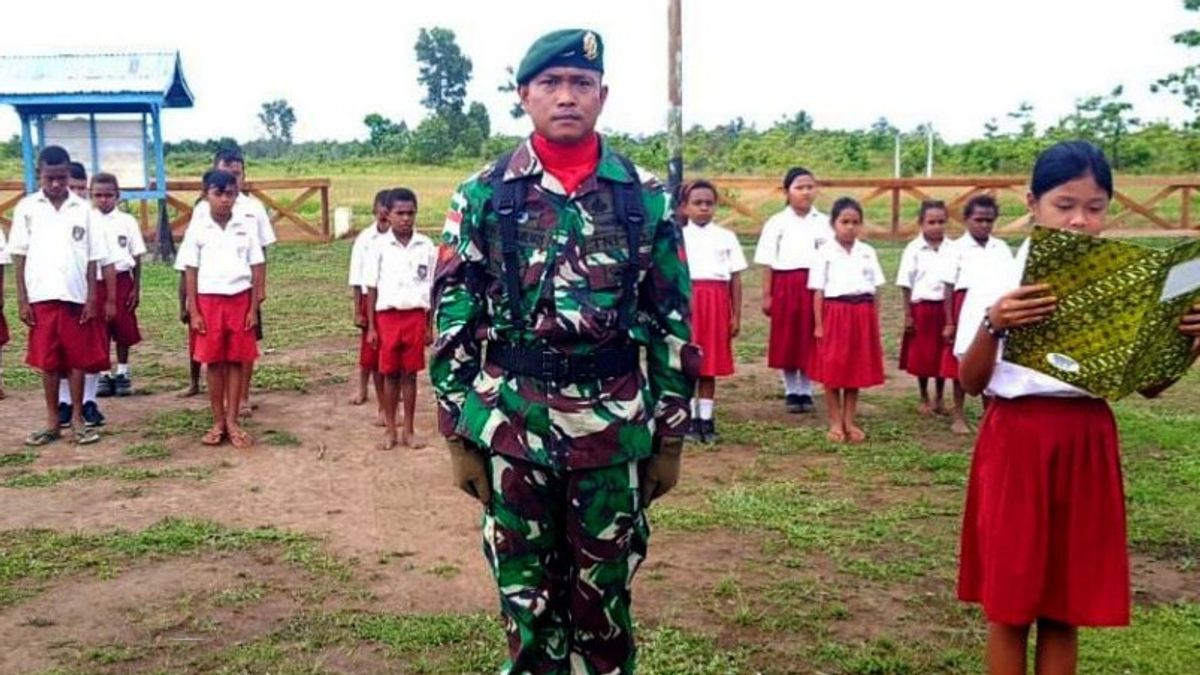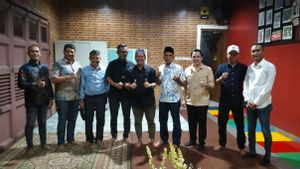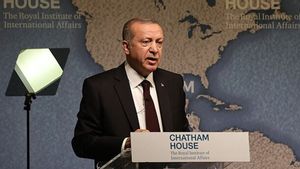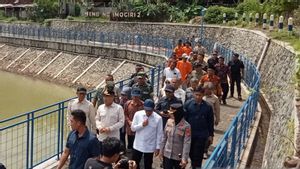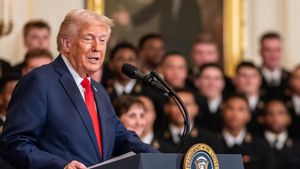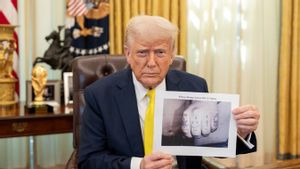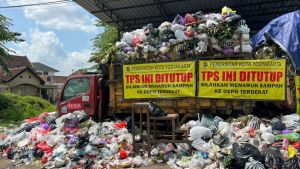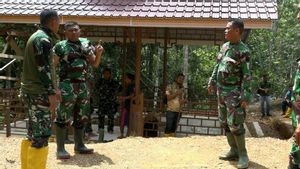JAKARTA - The Special Committee for Papua DPD RI said that it would hold meetings and dialogue with separatist groups in Papua, namely the United Liberation Movement for West Papua (ULMWP) and the West Papua National Committee (KNPB). The meeting that will be held on November 27 in Jayapura and the special committee said that the group was ready to carry out a dialogue.
A political researcher from the Indonesian Institute of Sciences (LIPI), Aisah Putri Budiarti or familiarly called Puput, said the dialogue that will be carried out by the DPD Special Committee is a step to resolve conflicts in Papua. However, he reminded that this meeting should not end without results.
Moreover, there have been quite a number of meetings between the central government and the Papuan people. However, in the end this meeting was only 3B aka meeting, asking, and chatting. There are no joint steps to solve a substantial problem.
"So far, many meeting activities use the 'term' dialogue. However, for me the meaning is different," Puput told VOI via text message, Tuesday, November 26.
In a dialogue, said Puput, it should end with a bond or agreement between the two parties to resolve the conflict. "For example, the Helsinki MoU for the Aceh case," he said.
Puput noted that conflict resolution on Cenderawasih Earth by means of dialogue must be carried out in an inclusive manner, involving many parties. All parties with an interest in and related to problems in Papua must join in the dialogue to make a mutual agreement. The reason is that many conflicts there are masterminded by different intellectual actors.
Apart from having to be carried out in an inclusive manner, as a Papuan study team at LIPI, Puput said that dialogue must also be carried out comprehensively to resolve the Papuan conflict in its entirety. Moreover, there are four root causes and conflicts in Papua, namely related to the political status and history of Papuan integration, development failure, stigma and discrimination, as well as allegations of human rights violations and state violence.
"These four issues must at least be discussed in the dialogue, not just one or two of them," he said.
Papuan independence discussion
Puput also said that the Papua Special Committee should be able to respond if there will be discussions about Papuan independence as what separatist groups who have been invited to meet such as ULMWP and KNPB aspire to. Thus, it is important for the special committee to understand the characteristics of separatist groups before holding meetings.
Moreover, in a dialogue, anyone can share their views. However, this view does not necessarily become a fixed price for the end of a dialogue. Because, whatever their views will be discussed further with those involved there.
"This process is an important point to get a common agenda that can be accepted by all parties," said Puput.
To get the best results from the dialogue, Puput said, there must be thorough preparations made by the DPD Papua Special Committee. "The first step in preparing for this dialogue is carried out by appointing a PIC (Person In Charge)," he explained.
Furthermore, this can be done by determining and preparing the parties, mapping out the dialogue agenda, and determining how the dialogue is effective. Moreover, the special committee's intention to meet with separatist groups should be an important illustration that dialogue should be carried out with anyone. This includes groups with different views regarding Papua.
"The door to dialogue must be opened to anyone, including separatist groups," concluded Puput.
Previously, the Chairman of the Special Committee for Papua DPD RI, Filep Wamafma said that the meeting with ULMWP and KNPB would be held after his party met with the government and traditional and religious leaders.
He said the meeting was held to discuss what the Papuan people wanted. This includes the wishes of groups who have so far felt that they have not been heard by the central government. "We want to hear what they want, we take notes, we will discuss it further," he said.
Filep did not deny that later, of course, there would be a discussion about the Papua refendum when meeting with representatives of ULMWP and KNPB in Jayapura. However, as senators representing the regions and moving in the interests of their country, they said the discussion would still be in accordance with the mandate of the state constitution.
Meanwhile, the Coordinating Minister for Political, Legal and Security Affairs (Menkopolhukam) Mahfud MD said that his party would continue to coordinate with the Papua DPD Special Committee to resolve existing problems comprehensively.
"This comprehensive means through a culture of open dialogue. Then a peaceful settlement is not by means of violence. Including violence, we are not allowed to do so," he said at the Kemenkopolhukam Office, Jalan Medan Merdeka Barat, Central Jakarta, Monday, November 25.
He hopes that later from the dialogue there will be a prolonged concept to resolve the conflict on Earth of Cenderawasih. "Let's run this well from all available channels. Protecting human rights and protecting the rights of the state," he concluded.
The English, Chinese, Japanese, Arabic, and French versions are automatically generated by the AI. So there may still be inaccuracies in translating, please always see Indonesian as our main language. (system supported by DigitalSiber.id)
